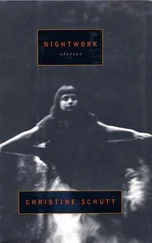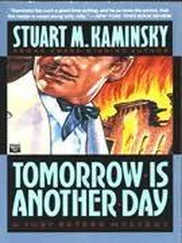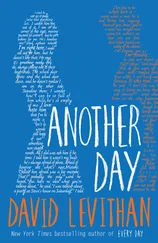Christine Schutt
A Day, a Night, Another Day, Summer: Stories
THE YEARS, SHE SAW, fell heavily as books: the missing husband pinging a racket against the chuff of his hand, her charmed sister at the rental’s beach, the raging Jean herself. In a coil of towel, the little boy named Jack was powdered free of sand. She tended to him then — absent, curious, easeful — and he calmed under the warmth of her hand. Now Jack’s body was his own and not a thing she felt branched of, her hands growing out of; mother and son, they had even smelled the same once, when Jack’s teeth were growing in. Now she did not get close enough — did not want to get close enough — to smell him. Jack’s skin was given over to the wild fluctuations of his age, which meant it was one day clear and smooth, and the next erupted, and still later newly healed and probably sore. Now the boy smoked.
It was what he asked for first with the smoke of something smoked down clouding around his head: “Did you remember cigarettes?” Yes, yes, her soft assent. “But what I need,” Jack said, “are socks.” Snack foods, paper, stamps: the listlessly articulated list from every visit grew as the corridors grew, or so it seemed to Jean as she walked through the swabbed facility with its smell of Lysol and fish!
“Stamps,” Jack said, “are what I really need. I want to write to friends.”
Jack said, “I wrote myself here,” and he showed Jean what he did every night on the edge of the table, which was a deeply scarred table, full of dates and initials, profanations, codes, and there on the edge, his knife-worked JACK. Jack said, “I want people to know I’ve been here and that I was okay. I had friends. Fuck,” he said, “I’ve made a lot of friends,” and so he had. An odd assortment said hello or made motions to speak to Jack each time they bumped past.
Jean said to Jack, “So what do you do with your friends?”
“They’re not all friends,” he said. “Some of them”—and he pointed to a boy with an old black face and voluptuously muscled body—“that guy,” Jack said, “already has a kid. He’s been in jail. And the fat girl bit a girl for trying to comb her hair. I don’t talk to that crazy. Nobody does. There were stitches. That’s how bad it was.”
How bad it was Jean told her sister. Jean called the place the facility, eschewing its bucolic name and using Jack’s slang when she was angry. Then she called the facility a dry-out place, a place for rehab on the cheap. A motel or a conference center, the facility had past lives in the same way as did its staff. First name only, confessing only their abuse, the pallid staff wore cushioned shoes and shuffled small steps. Their talk, too, was small and coughed out with erasures from whatever they saw looking back — not that, not that — but ahead, the home contract, the dickered pact, the rules to school the house against the wily abuser. “Addiction,” the staff said, “we’ve been there — and been there. Relapse is common with friends still using.” The staff twitched matches, frantically serene.
Jean told her sister, “These are the guys helping Jack with his homework. These are the people meant to be his friends.”
But Jean’s sister, being her sister, and wiser, Jean’s sister said, “This is where Jack should be.”
The hours at the facility were blocked and named: group, individual, free. “I’m climbing steps,” Jack said, smiling. “I’m making progress here, Mother. You’d be proud!”
Jack. She was used to the shard of his name since he shortened it. His hair color, too, had changed, was leaden and beaten by the last school’s cap, the same he wore through the meeting.
“Jack!” she said.
“What?” he asked.
Mother, son, counselor, here they were again, the weekend group in consultation: family was the name on the schedule.
Who was getting better? she wondered. Who was sick?
Jean asked her wiser sister, “Am I?”
“Are you?” she asked back.
Yes, it was all too common a story — Jean knew, she admitted as much — a woman on her own and what she had to do because of the children. Because of them she had to ask the missing husband for what he did not have that yet was needed.
“Look at what I’ve had to do for money,” Jean said, home again, on the couch with the quiet son, Ned. The men she had let wander into the apartment. Think of them! And she did — and didn’t he? “Don’t you think of them sometimes?”
Ned said, “I was very young, Mother.”
It was Jack, years older, who had said he remembered a man who shook her upside down for quarters.
“Oh,” Jean moaned as Ned was getting to and scratching some unreachable places. “Oh, I hope you don’t remember,” she said. Then, “Yes! That feels good!” she said, and said again, “That feels good!” and Jean let her towel drop in a way that made her wonder since there wasn’t a man to put lotion on her back should she ask her son to do it.
Jean, at the facility, said to the counselor, “Ask Jack what he did with my bank card. I bet he didn’t tell you.” Freely spending with the purpose to be caught, it seemed, Jack had bought what in the moment moved him, leaving waxy, bunched receipts between the sheets for her to find of what he had signed for with abandon, largely. Felonious boy, that Jack! Skulking the facility, as she had seen him, butting what he passed — doors, walls, wheeled racks hung with visiting coats — Jack scared Jean a little, and she came home tired.
And Ned was tired! Tired from scratching. Tired from the yawn of Saturday, from homework, from art class, from girls. From streets and apartments, cigarettes, beers — from more girls. On almost any Sunday, late in the morning and cragged in a gray sheet, the boy slept in his room, which was also gray. Thin light, lingering smoke. Something there was about Ned gray, too: the pale skin of his outstretched leg, blue-black hair in a cuff at his ankle. Only his foot, the heel of it, was full of color — not old pavement to be razored — Ned’s foot was young. It invited petting, touching to say, Wake up. “Wake up,” she said, looking at the covered boy because she did not want to see what was on the bedside table, although Jean saw it clearly: the cigarettes first, the ashy spill around the glasses, orange juice pips on the rim of the old-fashioned. Haywire spirals yanked out of notebooks, Post-its curling on the tops of papers: See me! one of them said. Jean was looking at the screen-dead computer. The drawers, too, she saw but did not open. She knew enough about Ned. She knew he drank and smoked, carried condoms, broken jewelry. She knew he liked to kiss; he liked the girls. Girls, girls, girls, girls. Their voices ribboned out from faces closely pressed against the cradle of the phone — babies still, most often shy. “Is Ned there?” they asked.
“I’m sorry,” Jean said — and said—“he’s still asleep.”
Lifted in the wind, the blinds banged their music on the sill; it was a sound of diminutive breakage — of saucers, of cups — in a rhythm like the rising and falling of a chest, like breathing, a boy’s, his. Tiptoed and unsteady, she silenced the phone next to his bed. She put the ringer on off — and why not? The callers for Ned would call back, so let him sleep, she thought, another hour. Let him grow in his twisted sheets! Bent, crooked, an impression of bones he was, a tent of bones, a sudden arm slung above his head and the black tuft of hair there as startling as his sex.
Think of something else, think of the Sunday papers. Consider this fall’s color on girls stood back-to-back, with their skinny arms crossed, as girls crossed them, coyly. The girls who visited Ned stood at the door coyly, toed in and stooped with baby backpacks on their backs, asking from behind ragged bangs, “Is Ned home?”
Читать дальше












